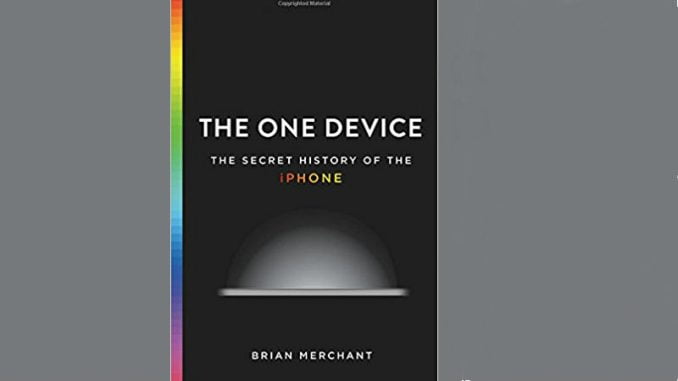

To mark iPhone’s 10 year anniversary, author Brian Merchant has penned a book for Apple that details the ‘inner dish’ behind bringing the first iPhone to the market. While the book – named ‘The One Device: The secret history of the iPhone’ – is set to release on June 20, and the author has released excerpts from it online, revealing juicy details about the development of the first iPhone. In fact, according to the excerpt shared by Merchant, Senior VP of Marketing Phil Schiller was not so thrilled about the idea of a full touchscreen, and wanted to integrate a physical keyboard on the iPhone.
In the excerpt, revealing juicy bits as told by Apple engineers and employees of that time. The excerpt, a few pages long, details how the team was brought together to work on a ‘secret project’, how employees from Apple’s workforce – the best engineers it had back then – were whisked away mysteriously to work on a new project for two and a half years. The engineers on the iPhone team had to go through immense pressure to make the first iPhone a reality, with some even blaming their divorce on the iPhone. “Yeah, the iPhone ruined more than a few marriages,” says an employee in the excerpt, something the author heard more than once while conducting research for the book.
While hardware was a challenge in itself, building the software for the iPhone was not an easy task either. Even though, then-CEO Steve jobs approved the iPhone project only in 2004, the software was a result of thirty years of research and tinkling, the excerpt claims.
It gives us juicy bits about how the secret iPhone team was gathered. “Henri and I walked into his office,” [Richard] Williamson recalls, “and we said, ‘Andre, you don’t really know us, but we’ve heard a lot about you, and we know you’re a brilliant engineer, and we want you to come work with us on a project we can’t tell you about. And we want you to do it now. Today.’ ” Merchant also delves into many accounts recalled by the ‘iPod godfather’ Tony Fadell himself.
Fadell, who worked as Senior Vice President of the iPod Division at Apple from March 2006 to November 2008, claims that he secretly worked on building iTunes for the Windows software, even though Jobs didn’t approve of it. Fadell also notes that Schiller was not so excited about the touchscreen.
“When the rest of the team had decided to move on multitouch and a virtual keyboard, Schiller put his foot down. Steve looked at him and goes, ‘I’m sick and tired of this stuff. Can we get off of this?’ And he threw him out of the meeting,” Fadell recalls. Later, he says, “Steve and he had it out in the hallway. He was told, like, Get on the program or get the f* out. And he ultimately caved.” That cleared it up: the phone would be based on a touchscreen. “We all know this is the one we want to do,” Jobs said in a meeting, pointing to the touchscreen. “So let’s make it work.”
However, Schiller took to Twitter soon after to rubbish those claims, and Fadell even tweeted that he has asked Merchant to retract that statement from the book. For a game-changing product like the iPhone, there was a competition of sorts between two projects, named P1 and P2, to become the prototype for the first Apple phone. While the former was an attempt to bring features of a phone to the iPod, the latter tried to shrink the Mac software onto a device that can fit in your palm. Of course, the latter was the one with the touchscreen, the one that won the competition and became the prototype for the first iPhone. But that seems to only be the first leg of a long journey that would change the multiple industries as well as how the world used phones and computers.
The book also elaborates how many Apple executives’ distaste for the mobile phones available at the time was also an instrumental factor in the development of the iPhone. That, and the fears that mobile phones with music-playback capability could effectively doom the iPod into oblivion. Thus, the company started collaborating with Motorola on the Moto Rokr, the phone with iTunes baked in.
Quoting Fadell, the excerpt says, “It was, How can we make it a very small experience, so they still had to buy an iPod? Give them a taste of iTunes and basically turn it into an iPod Shuffle so that they’ll want to upgrade to an iPod. That was the initial strategy.” However, the Apple team did not have many exceptions from the Rokr. Nonetheless, the phone continued because “Steve [Jobs] was gathering information during those meetings with Motorola and Cingular.”
To read more details chronicled in the excerpt, head to The Verge, or wait it out till the Kindle version of the entire book releases on June 20 for $14.99 (roughly Rs. 1,000).
[“source-gadgets.ndtv”]
